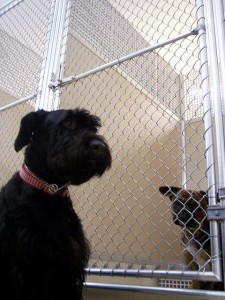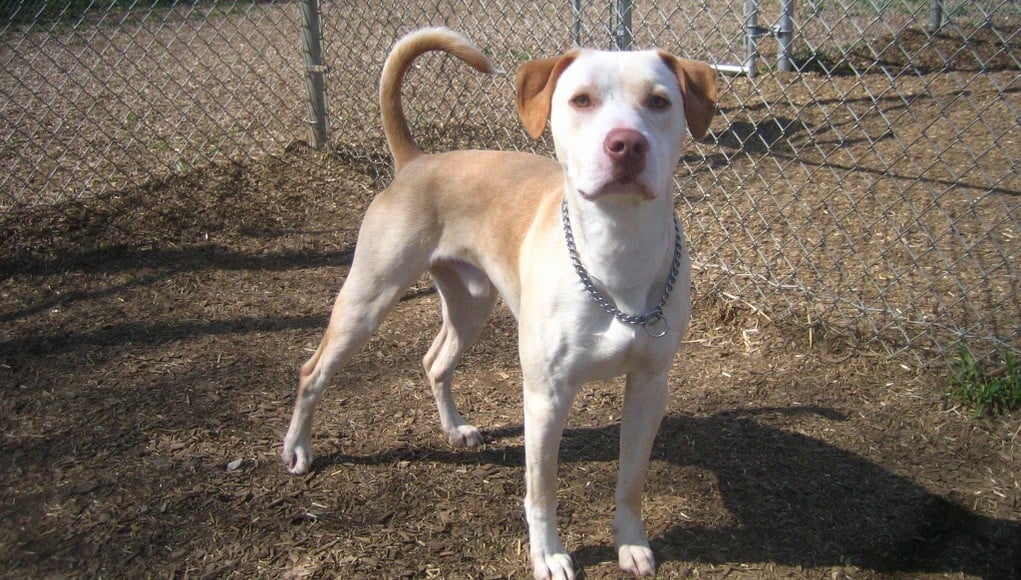Dog boarding is a great business opportunity for animal lovers and, according to The American Pet Products Association, is also one of the fastest-growing aspects of the pet industry. In this column, we'll discuss how to start a dog boarding business and everything you will need to know to make your business venture a success.
Of course starting a dog boarding business is not for everyone, but for those who are passionate about animals, it is a business that can be emotionally, as well as financially, rewarding. Boarding kennels offer a convenient place for pet owners to leave their animals while they're traveling.
These types of facilities can range from luxurious pet “hotels” and “spas” to indoor and outdoor no-frills-type boarding. Some boarding facilities pair with dog groomers and other canine service providers to pamper and spoil your pet while you're away. Others are in-home businesses that treat your dog like a member of their own family.
Dog boarding businesses are almost guaranteed to have clients no matter where they are located. Whether you're in an urban area or a small rural town, there are sure to be dog owners located in your area who will be traveling and will require boarding services. The key is to plan your business to meet the needs of your customers.
[optin-monster-shortcode id=”mmevqhqfl46p1is5″]
With proper planning and preparation, you’re sure to be a success! Owning a business is not for everyone, but if you think you have what it takes and you're interested in learning more about how to start a dog boarding business, this guide will help you create a plan for getting your venture started.
How to Start a Dog Boarding Business
Dog boarding sounds simple, right? All you have to do is build a few kennels, advertise, and the dogs will start showing up. Then you just feed them, walk them, and clean up after them for a few days until their owners return, and you get paid! Don't be fooled. Owning your own business is never that simple.
Before you stick an ‘Open’ sign on the front door, there are a few things that you need to think about. Small business owners wear many hats, and although you will be spending a lot of time with your four-legged guests, you need to be prepared for many other tasks as well. You’ll have to deal with:
- Initial setup
- Advertising
- Customer Service
- Banking
- Taxes
- Office Administration
…and a few other things that will surely come up along the way.
RELATED: How to Start a Dog Breeding Business
It would be wise to take a small business class or two before jumping into the industry. Many organizations offer these types of classes for free. Do some research and speak with other small business owners to get a feel for all the things that you'll be responsible for. The more prepared you are now, the fewer surprises you'll find on the road to opening your dog boarding business.
The first thing you'll need is a passion for animals
The key to running a successful dog boarding business is having a passion for the clients you'll be working with. Remember it is imperative to provide a safe environment for the pets you are boarding and focus on the needs of each dog individually.

To a pet owner, the health and happiness of their animal is high on their priority list, and they’re not going to board their furry friends with just anyone. Remember, people entrust that when they leave their pet in your hands, you are 100% committed to dispensing the best care possible for that animal.
It is imperative that your potential clients know that the same love and care you give to your pets is the love and care you will give to them. You'll likely be caring for a wide variety of dogs – some may be hyper, you'll likely care for senior dogs, and you'll surely meet a few that aren't super friendly – and you need to be prepared to give them all the time and attention that they deserve.
Gain Experience
Gaining experience in an animal-related field is a great way to get your feet wet before jumping into operating your own kennel business. Working as a pet sitter, dog walker, veterinary technician, or even an animal shelter volunteer is key to learning about facility maintenance, animal behavior, and animal health.
RELATED: 8 Ways to Work with Dogs as a Professional
Don't assume that just because you have your own pets, you will be fully capable of caring for other peoples' animals. Other dogs are trained differently than yours (and some aren't trained at all), and all animals have their own routines, preferences, and quirks. Not to mention that you will have multiple dogs at a time, and that could change the dynamic completely.
Check out the International Boarding and Pet Services Association and other membership groups that offer industry-specific training and education programs for kennel owners. Even if you have plenty of experience with animals and feel completely ready to take on a dog boarding business, additional training will look great on your resumé.
Research the Legalities
Before opening your boarding facility, you will need to contact your local zoning board to find out which zoning laws may be in place when starting and running a pet boarding business. Some areas do not allow pet boarding, so it is important for you to figure that out before you sign a lease on a commercial building. You should check with your local government and obtain written zoning department approval before moving forward.

Your local government will also have all the information you'll need about any licenses or permits necessary to operate your business legally. There may be state and local procedures to follow and documentation to receive before your dog boarding business can officially open.
Boarding contracts will need to be drafted for your clients to sign as well. These contracts will protect you, your establishment, any employees you may have, and the dog and dog owner(s) as well. These contracts must be very detailed, and you may want to work with a lawyer to help you draft them.
Consult with a commercial insurance agent, too, and take out a liability insurance policy and establish a plan for emergency veterinary care should an animal suffer a medical emergency. If you're planning to run your business out of your home, you'll need more than just your homeowners insurance to protect you, your home, and your assets.
RELATED: How to Start a Pet Business with Dogs
It is also wise to speak with your attorney or accountant about forming your business as a limited liability company (LLC), sole proprietorship, or another entity. Try and choose a CPA who is familiar with the pet-related industry. Many small businesses run as sole proprietorships for the first year or two and then establish themselves as LLCs to separate their personal and business assets.
Select a Profitable Location
Once you've gotten all the zoning issues figured out, you can move on to selecting a location for your dog boarding business. When selecting a location, there are a few factors that need to be taken into consideration. In a perfect world, franchising or buying an existing kennel is the ideal way to go, but it is certainly possible you will have to build your facility from scratch.
This is where the start of your planning and expenses will be. The location is one of the most important aspects of running a successful business. Be sure to select a site that is easily accessible with plenty of customer parking and away from residential areas.
Study your regional boarding market, analyzing every kennel near your location. You want to be in an area with many dog owners, but you don't want to be too close to competing boarding facilities.
If you are constructing a new facility, you must first be certain that you are allowed to have a kennel there. Also, look into what building permits you may need to either construct a new building or remodel an existing building.
Speak with your local government to see if there are any extra building precautions that you'll need to take as well. For example, you may be required to put in an extra high fence or one that reduces sound. You also may be required to add an additional septic tank or some other form of disposal for the dog waste.
Dog boarding facilities should be air-conditioned and heated to maintain a comfortable temperature for the animals all year round. If the facility you choose isn't equipped with these amenities, you'll need to make sure that you allow for them in your budget. Heating and cooling systems can be expensive, so you may want to get an estimate before you make your final decision.

Boarding facilities usually include large play areas as well, where the dogs may interact and exercise. You may also need space for dog runs and a mix of cages. Agility courses and splash pools are becoming popular features, and some high-end boarding facilities offer live streaming webcams, small “suites” with human beds, and even televisions.
RELATED: How to Start a Dog Walking Business
You'll have to make some decisions about the amenities that you'll offer before making a decision on the space that you'll rent. Likewise, if you're planning on starting your dog boarding business at your home, you'll need to make sure you have plenty of space for all the features that you want to offer your clients.
Advertise
There are a plethora of marketing options for a boarding kennel, including local media coverage, vehicle decals, mass mailings, newspaper or magazine ads, phone book ads, social media accounts, web pages, and more. And don't forget to leave business cards and flyers at supermarkets, office complexes, dog parks, pet supply stores, veterinary clinics, and any other places pet owners may congregate.
Your ability to advertise will be closely tied to your budget. Advertising can get very expensive when you start paying for television commercials and radio ads. Set a strict budget based on what you can afford, and DO NOT exceed your allotted amount.
You can spend a lot of money very quickly in the advertising market, and you don't want to overspend in this area to affect the supplies you are able to purchase or the funds you have available for building or remodeling your location.
As you can see,, there is a lot more to planning, opening, and maintaining a small business than meets the eye. You will be the owner, operator, administrative assistant, janitor, maintenance person, and so on. Knowing how to start a dog boarding facility is one thing, but committing to making it successful is another.
You have a lot of hard work ahead of you. If you're committed and dedicated, you'll find success. Just remember that proper planning now will make everything from writing your business plan to obtaining financing much easier. Putting in the work now will save you from making many mistakes in the future.
References and further reading:
- https://hr.cornell.edu/life/support/pet_care.html
- https://ansci.illinois.edu/groups/companion-animal-biology/dog-boarding-day-care-andor-grooming-services-ownermanager
- https://www.sba.gov/blogs/getting-started-animal-care-and-services-industry













